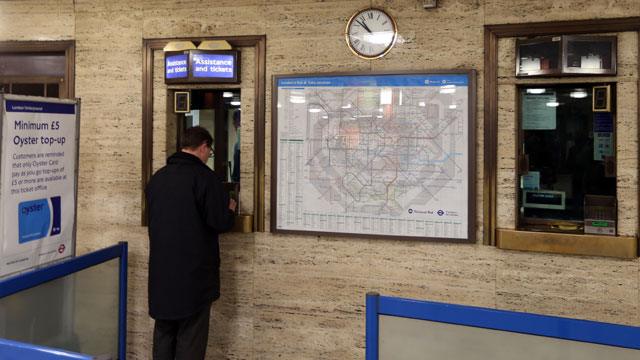Tube strike begins across London Underground network
- Published
The strike was called after London Underground and unions failed to agree a pay deal over the all-night service
Tube staff have gone on strike across the entire London Underground network in a row over pay and conditions.
The strike, which officially began at 18:30 BST, affects all Tube lines and will finish at 21:30 on Thursday.
It was called after London Underground (LU) and unions failed to agree a deal over pay and new night-time services.
The rush hour started in the afternoon as commuters left work early to try to beat the strike. LU has warned there could be no services on Thursday.
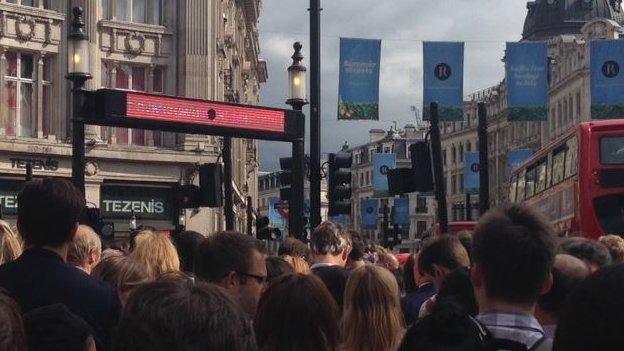
Crowd control was in place at Oxford Circus
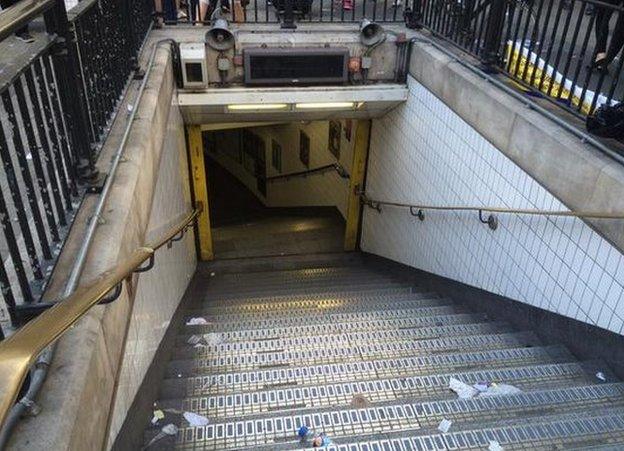
The scene at Oxford Circus Tube station entrance at 18:59
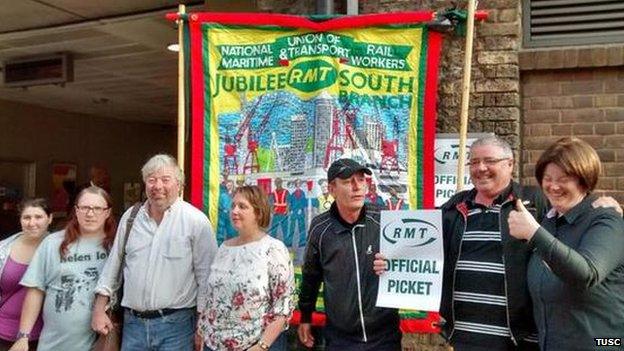
Trade Unionist and Socialist Coalition members stood on the picket line with Tube workers at London Bridge
Members of the Rail, Maritime and Transport (RMT) union, Transport Salaried Staffs Association (TSSA) and Unite started their 24-hour strike at 18:30. Aslef drivers were due to start their 24-hour action from 21:30.
The typical salary for a Tube driver is £50,000 a year, the RMT said.
Extra buses
Scenes of chaos as the Tube strike gets under way
In a separate dispute, First Great Western staff also walked out for 48 hours at 18:30, causing disruption to services between London, the west of England and Wales.
A TfL spokesman said: "On the buses everything is doing pretty well, people followed our advice and made their journeys earlier, there was some heavy loading but nothing extreme."
He said there were 100 extra buses on the network and 200 would be laid on for Thursday.
Traffic delays around Euston Road through the evening peak time and a unrelated protest at Parliament Square were causing problems, he said.
Taxi drivers have been busier than normal during the strike.
'Surge pricing'
Bob Oddy, deputy general secretary of the Licensed Taxi Drivers' Association, said: "The public can rest assured they will not be ripped off by the licensed taxi trade who will only charge the normal fare which has been set with TfL."
His comments come after the BBC found that car service app Uber had raised its prices through the day as demand for alternative transport increased.
A journey from Oxford Circus to Clapham Junction that cost between £10-£14 at 10:00 was priced at £25-£32 by 17:00 and a journey from Oxford Circus to Paddington that cost between £6-£9 at 10:00 cost £15-£19 by 17:00.
The practice, called "surge pricing, external", is normal among some hotels and airlines and is explained on Uber's website, BBC transport correspondent Tom Edwards said.

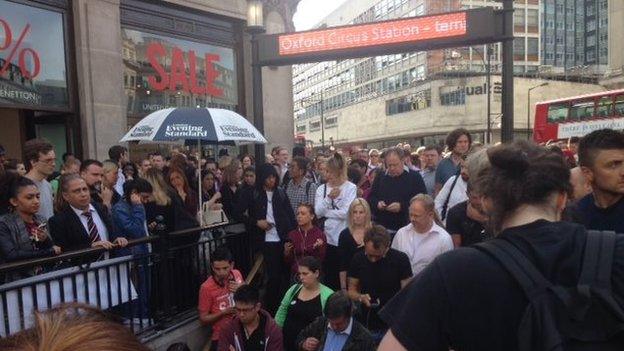
At the scene
Beth Rose, BBC News at Oxford Circus
People had to beat the crowds by leaving work early and getting the last Tubes out of the city.
But with noses pressed against backs and bodies crushed against the walls of shops, the realisation quickly dawned on them that everyone had had the same idea.
The pressure started early. From 4pm, people were sweeping down the street, almost jogging to reach the Tube entrance.
But the crowds grew too quickly and plans had to be changed. Commuters consulted their phones, hoping to find an alternative route.
Failing that, when buses were dismissed as too full, the favourite option seemed to be a resigned shrug of the shoulders and a plan to walk - trainers or not.

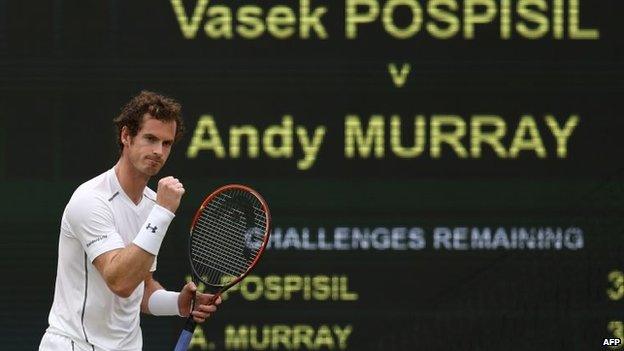
Spectators were urged to leave as soon as possible during Murray's quarter-final match
Wimbledon spectators planning to use the Tube were warned to leave "as soon as possible" during Andy Murray's match.
Ahead of the walkout, mayor of London Boris Johnson tweeted, external: "Tube strike politically motivated - union bosses need to explain why they refuse to put new offer to members - disgraceful - call it off!"
But the four unions involved maintain the new plans would be disruptive to their members' lives.

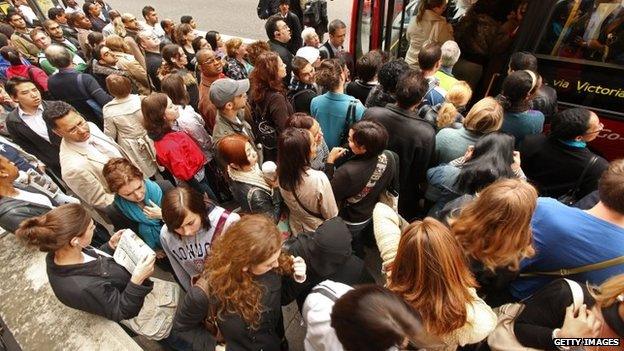

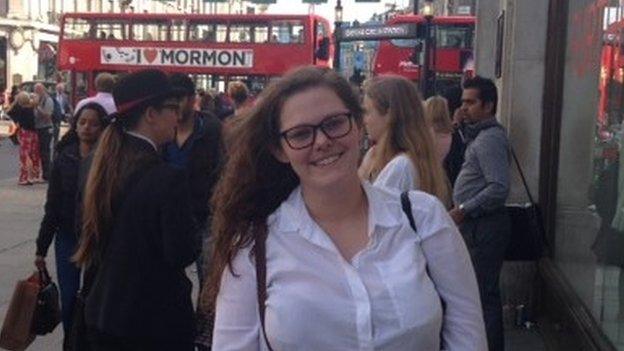
Billi-Jo Highdale said she would be relying on people giving her lifts
Commuter Billi-Jo Highdale said: "I've got to get to the DLR somehow as I need to go from Greenwich to Mile End, or find a lift from someone. I had plans with a friend for tomorrow but I've had to cancel them.
"My parents are black-cab drivers so they will do well. It's as good as a three-day weekend for them, although it sucks for everyone else."
Camilla Fleury, a fashion retailer, said: "I got out of work fine and I'll probably walk to a DLR line and then use that to get home. It's going to be a very long walk, but I hope I can do it within an hour."
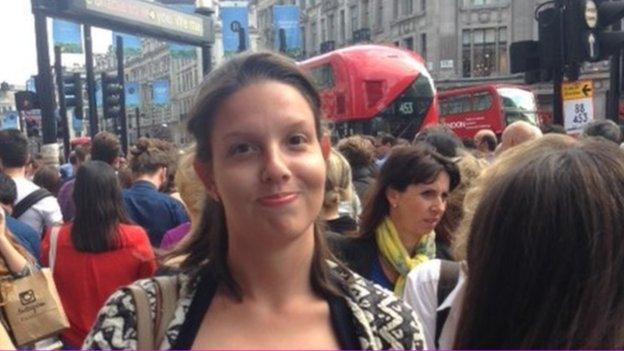
Camilla Fleury was one of many getting ready to walk home
Another commuter said: "I have no idea what to do tomorrow. My bosses are being understanding, but we have to show up in the office at some point."
The disputed weekend night services are set to begin on 12 September on sections of the Central, Jubilee, Northern, Piccadilly and Victoria lines.
There are concerns some employees will have to work more overnight shifts and could have to work on their own in some stations.

Analysis by Richard Westcott, BBC transport correspondent
This Tube strike is as much about personalities as it is about the deal they are trying to hammer out.
The team negotiating for LU is new at this. The chief operating officer, Steve Griffiths, joined from Virgin Atlantic earlier this year, and my understanding is that no-one on the management side of the table has experience dealing with rail deals.
Not that long ago, bosses on both sides would have got together, informally, maybe over a beer, to see if they could smooth the path for an agreement.
That hasn't happened this time.
So, we've got a group of frustrated unions. A frustrated LU. And four million Tube passengers in the middle.
Both sides think the other is being unreasonable.
Unfortunately, there don't seem to be any of those old, informal lines of communication open right now, which in the past might have just sorted this out.

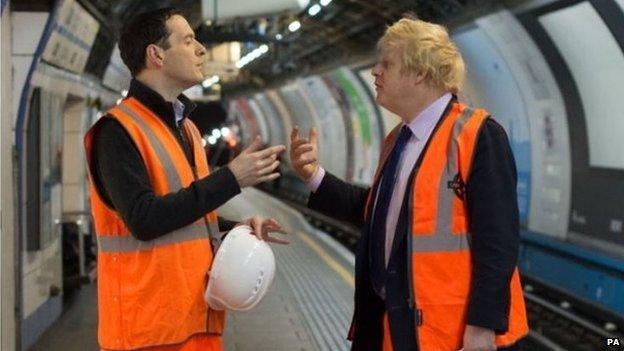
George Osborne and Boris Johnson claimed the Night Tube would add £6.4bn to the London economy by 2030
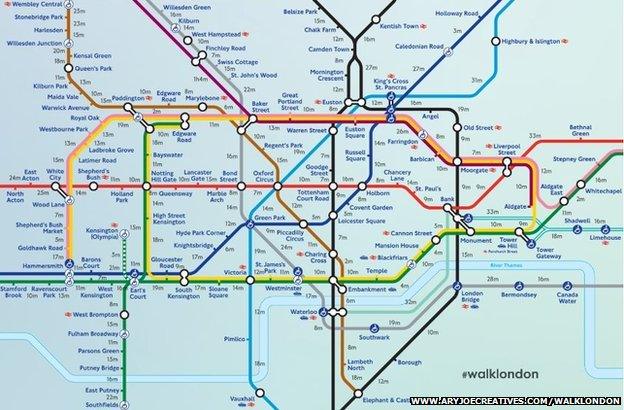
A walking Tube map has been created to indicate the time it takes to walk between stations
On Monday, unions rejected LU's latest pay deal, which LU said was an increased but "final" pay offer made "in an attempt to conclude five months of talks".
It included a 2% rise this year and £2,000 for drivers on the weekend night Tube service.
Mr Johnson told the BBC: "What we've done is made an extremely good offer, that I think most Londoners would think was more than handsome."

Getting about
TfL advice
Cycle and walk where possible
Extra bicycles will be available to hire from London's cycle hire scheme in central London
The DLR, London Overground, bus network, tram and TfL Rail services will operate as normal, however passengers are advised to travel outside of morning and evening peak times on Thursday
First Great Western staff are striking too - there will be no First Great Western service between Paddington and Greenford for 48 hours from 18:00 BST on Wednesday as a result of separate strike action
Chiltern Railways services are not stopping at stations between Great Missenden and Marylebone travelling southbound during morning peak time, but a normal service will run after 09:30 BST
Chiltern Railways services between Aylesbury and London Marylebone via Amersham are also affected by the lack of LU signallers on Wednesday night and Thursday
Up to 200 extra buses will operate on key routes
The congestion charge remains in place

Unions would "not succeed" in their aims, he said, and he urged them to accept the pay offer, which he described as "final".
He said it was "absolutely wrong to hold London to ransom" and apologised for the disruption, which he warned would be "very considerable".
Transport Secretary Patrick McLoughlin said the strike was "unnecessary" and of benefit to no-one.
"We stand shoulder to shoulder with workers, families and commuters who want to go about their lives without disruption. I urge the strikers to accept the good offer that employers have made and get back to work," he said.
Aslef organiser Finn Brennan said the responsibility of the strikes "rests squarely with London Underground management" who "squandered the window of opportunity" to resolve it.
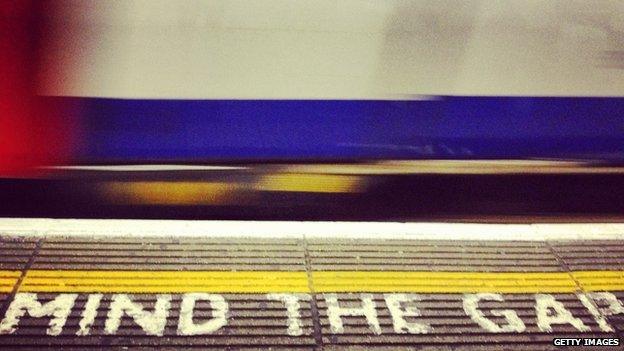
Some 20,000 workers are expected to strike
The TSSA union also rejected the offer and general secretary Manuel Cortes said: "This dispute is not just about pay, but about how to run a safe and secure night Tube which serves the passengers as well as rewarding the staff."
About 20,000 Tube workers are expected to walk out during the course of the strike.
Talks are set to resume on Friday.

The ins and outs of the dispute
The RMT, TSSA, Unite and Aslef unions say the dispute with London Underground (LU) is about workers' pay and conditions associated with the new Night Tube working
Union members have voted 9:1 in favour of strike action. Aslef said 81% of its members responded to the ballot
The unions have rejected a deal including a 2% average pay rise for all Tube employees plus a £2,000 one-off bonus for drivers on the five affected lines - by way of compensating them for night working
The RMT union says the rejected driver bonus would only have affected 1,000 Tube workers out of a work force of 20,000 and the union believed this was a divide-and-rule tactic
The unions say they want Tube workers to be fairly compensated for night working which has been linked to poor health
LU says its pay offer is both "fair and competitive"
LU says it is hiring 137 more train operators to work on the night Tube, which would result in existing workers doing "a few extra nights per year within the existing working week"
LU says no-one was being asked to work more hours than at present
The offer includes a pay increase in 2016-17 of RPI or 1%, whichever is greater, plus a £500 launch bonus to all staff on the night Tube lines plus a £2,000 transition bonus for drivers

- Published9 July 2015
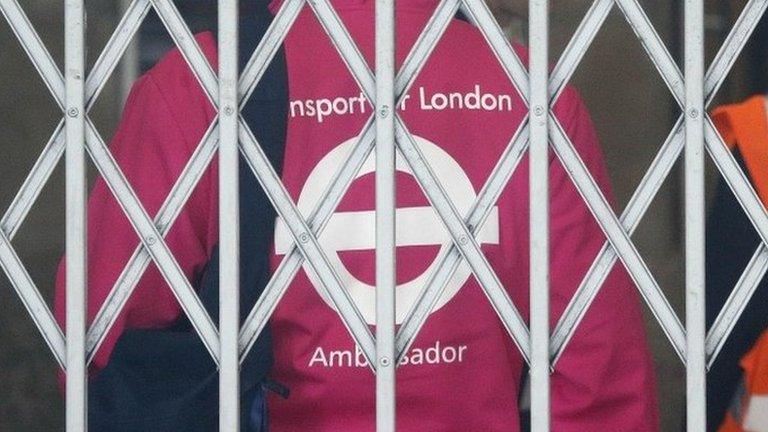
- Published10 July 2015
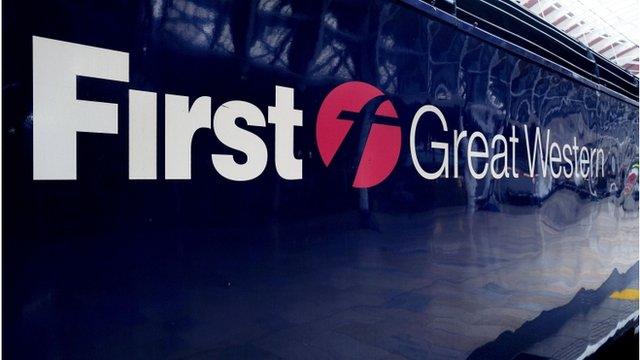
- Published16 June 2015
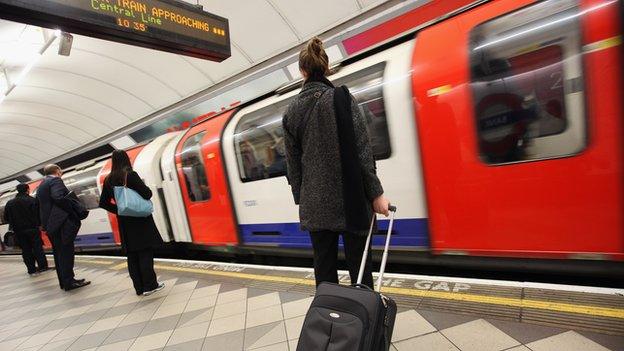
- Published22 June 2015
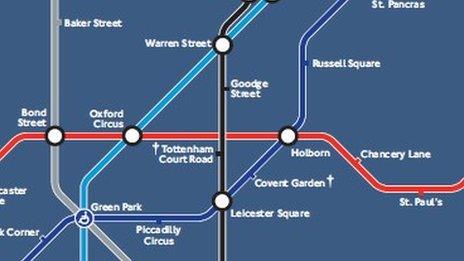
- Published29 April 2015
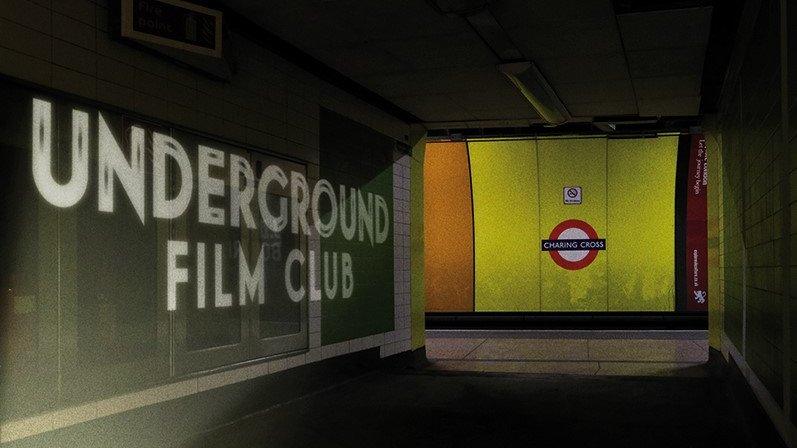
- Published20 February 2015
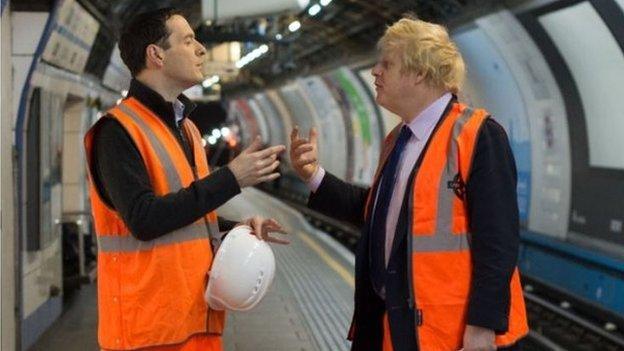
- Published23 January 2015
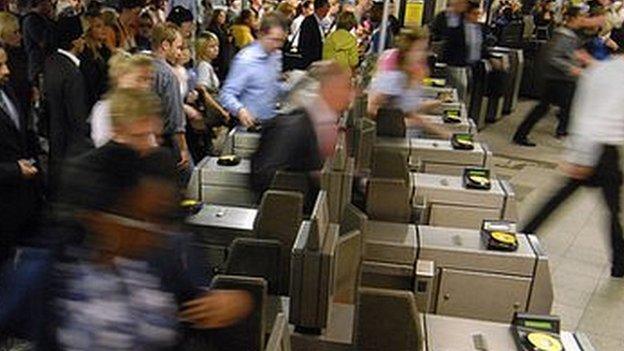
- Published21 November 2013
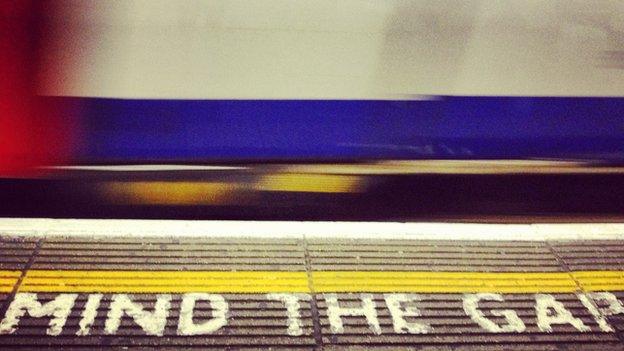
- Published21 November 2013
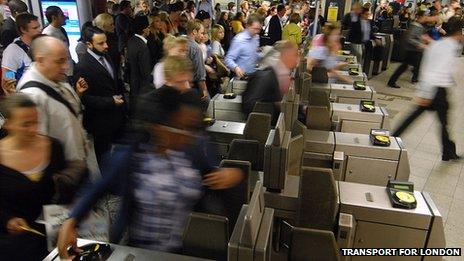
- Published21 November 2013
